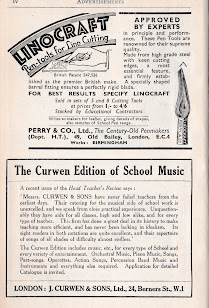Think pieces include:
Data harms and inequalities
Prof Helen Kennedy, Professor of Digital Society, University of Sheffield
Data-driven technologies, automated and algorithmic systems, machine learning and AI are transforming society. They’re having wide-ranging effects, including numerous benefits, but they’re far from straightforward, and their use can result in harms as well as benefits. So we need to question claims that datafication will simply lead to a better society. In fact, it feeds into and is fed into by inequalities. Whether we talk about harms, inequalities, discrimination, bias, injustice or unfairness, the negative effects of data-related change and data-driven systems are not experienced equally by all. This is why we need to talk about data in education.
Deconstructing data traps: Where to draw the line?
Prof Gemma Moss, Professor of Literacy, and Director of the International Literacy Centre, University College London
This think piece sets out some of the issues a team of researchers at UCL have faced in documenting how English primary schools have dealt with the stresses and strains that COVID-19 has produced in our data-driven system. I will consider how and in what ways our research project findings might be able to disrupt the dominant narratives about system gaps and the urgent need to close them that the crisis has provoked.
The surprising non-appearance of the datafied school?
Prof Neil Selwyn, Professor of Maths Science & Technology, Monash University
Dr Luci Pangrazio, Research Fellow in Digital Literacies, Deakin University
This presentation considers an unexpected finding from our ongoing research into digital data use in Australian high schools – why is it that critical concerns over the steady ‘datafication’ of education are not readily reflected in current school data practices? We first identify apparent tensions between: (i) established ‘teacherly’ logics of ‘data-driven’ schooling; and (ii) emerging ‘datafied’ practices associated with digital systems, platforms and devices. In particular, we consider how promises/threats of digital dataism appear to be largely subsumed into prevailing institutional logics of state bureaucracy and professionalism. We then consider the extent to which these ‘school data’ logics can endure amid the increased digitisation of K-12 education and commercial pushes for personalised learning. Alternately, what scope might there be to encourage more resistant appropriations of digital data by otherwise marginalised groups within school communities?
Anticipating fair futures through educational data practices
Dr Lyndsay Grant, School of Education, University of Bristol
In this talk, I will draw on ethnographic research in a secondary school to explore how data came to play a role in shaping educational practices through defining what could be known about pupils, teachers and learning, and through determining the future outcomes that were made possible. This research raised questions about the role of data practices in shaping ‘fair’ future outcomes for pupils and limiting the possibilities of more open-ended educational futures. These questions can help us explore how claims of ‘unfair’ educational algorithmic decisions might reveal contested notions of how fairness is produced through data, and the limits of transparency as a response to questions of fairness.
The Five Ps of Datafication in Schools
Dr Alice Bradbury, Associate Professor in Sociology of Education, UCL Institute of Education
In this short film, I use a schema to discuss the impact of datafication which is based on five Ps: pedagogy, practice, priorities, people and power. This draws on my forthcoming book Ability, Inequality and Post-pandemic Schools (Policy Press, 2021), which examines the relationship between data and discourses of ability. In this talk, I give examples of how we can use these five categories to broaden out how we conceptualise datafication to include teacher subjectivities and relations of power, as well as what teachers do and care about.
Destabilising data: Creative data visualisation and professional dialogue
Prof Cathy Burnett & Prof Guy Merchant, Sheffield Hallam University
In this think piece we consider what data may do – and what may be done with data- when inserted differently into professional dialogue in education. We draw on a project that set out to ‘do data differently’ by inviting primary teachers to create, visualise and share their own data on what mattered to them in everyday literacy teaching using a postcard format. We argue that shifting the focus, visualisation and sharing of data can have ‘complicating effects’ which – through foregrounding data’s instability and partiality – can produce generative spaces for teachers’ professional dialogue.














